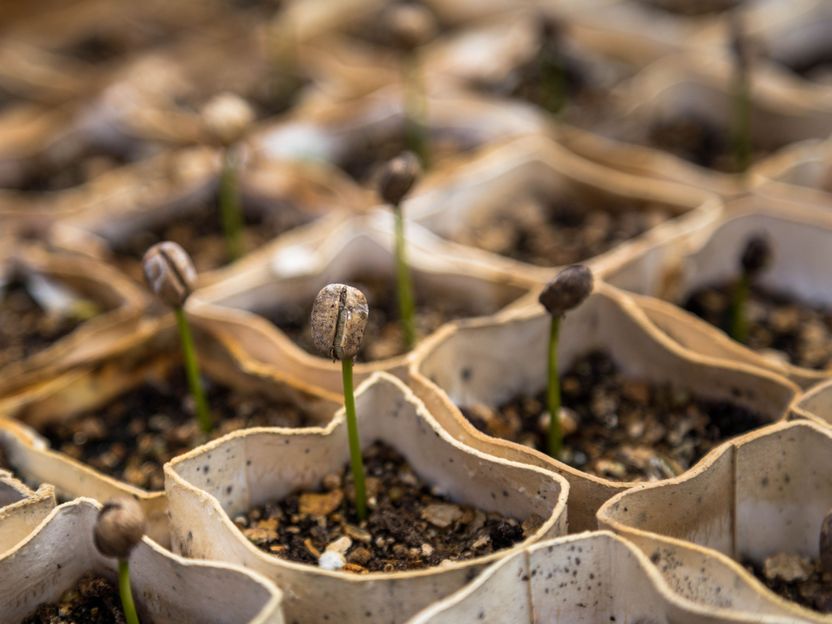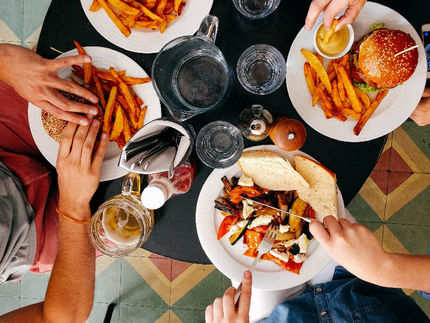Urban is the new organic
Food from the city
Stephan Becker-Sonnenschein, Head and Founder of the Global Food Summit, said at the press conference of the Global Food Summit on 20 March 2019 in Munich's PresseClub: "We
want to give the future of food a voice. We need next generation food if we are to sustainably feed nine billion people by 2050, most of whom will live in cities. This is not only possible with renunciation scenarios, but also requires innovations," says Stephan Becker-Sonnenschein, Head and Founder of the Global Food Summit.
The Global Food Summit 2019 will take place for the first time in Munich at the invitation of the Bavarian State Government, represented by the Bavarian nutrition Cluster. So far, the Global Science Conference has been held in Berlin. The theme of this year's conference on 20 and 21 March 2019 is: "Foodtropolis - Are cities changing our perception of food and nature?
At the kick-off press conference on 20 March 2019 at the PresseClub Munich, the Dutch company Mosa Meat presented the status of its research on Clean Meat, i.e. "artificial meat" from stem cells. Peter Verstrate, Chief Executive Officer of the company, which already presented a stem cell burger to the public in 2013, said: "We will be able to produce smaller quantities of our meat from 2021 and large production quantities from 2023". The world of proteins will change dramatically. Peter Verstrate is convinced that innovations such as Clean Meat will enable us to enjoy meat in the future without having to worry about the consequences such as CO2 emissions from large herds, land consumption and animal welfare.
In 2050, around 80 percent of our food will be consumed in the world's major cities. Around 70 percent of the world's population will live there. The food industry faces the challenge of sustainably feeding the growing urban population. This means leaving behind a world that is suitable for our grandchildren and producing in a way that conserves resources. Jaap Strengers of the British sustainability company Systemiq, which presented a widely acclaimed study at the World Economic Summit in Davos in 2019, said: "Currently, every dollar spent on food causes almost two dollars in social costs. The biggest problem is the way we produce food. We consume a lot of land. We need to find other types of food production that will burden our environment less
Circular concepts such as that of the Canadian city of Guelph could contribute to this. At the Global Food Summit press conference, Guelph presented a globally unique concept for "Canada's First Circular Food Economy". The Canadian city wants to become "Silicon Valley for Food", says Barbara Swartzentruber, Executive Director, Strategy Innovation and Intergovernmental Services at Guelph. For Guelph's circular economy approach, the city works closely with the surrounding area. The aim is to provide residents with a healthier diet, to produce less waste and ultimately to create more jobs through a concentrated science location with the associated business and start-up scene around food innovations.
The question of what is sustainability depends on the objective. Dr. Michael Binder from EVONIK presented the Veramaris project, in which breeding salmon receive all the nutrients they need, but which come from pure plant protein. Previously, two kilos of wild fish were needed to produce only one kilogram of farmed fish. With this project EVONIK wants to show a way out of the overfishing of the seas. However, energy is consumed in the production of vegetable proteins for fish food. This must be balanced against the UN's "Sustainability Goal 14, Life Under Water".
Dr. Michael Binder explained to the approximately 30 journalists present at the Presseclub München: "A single solution is never absolutely the right one. You always have to pay a price. Ultimately, it is the end consumer who decides what kind of sustainability is acceptable for him or herself."
The Global Food Summit will open today, 20 March 2019, at the Munich Residence of Mariam Al Mehairi, Minister for Food Security and EXPO 2020 from the United Arab Emirates, and the Bavarian State Minister for Food, Agriculture and Forestry, Michaela Kaniber. The approximately 220 participants from business, science, associations and politics will meet in the Bavarian capital until 21 March 2019.

Photo by Christian Joudrey on Unsplash
Note: This article has been translated using a computer system without human intervention. LUMITOS offers these automatic translations to present a wider range of current news. Since this article has been translated with automatic translation, it is possible that it contains errors in vocabulary, syntax or grammar. The original article in German can be found here.




























































